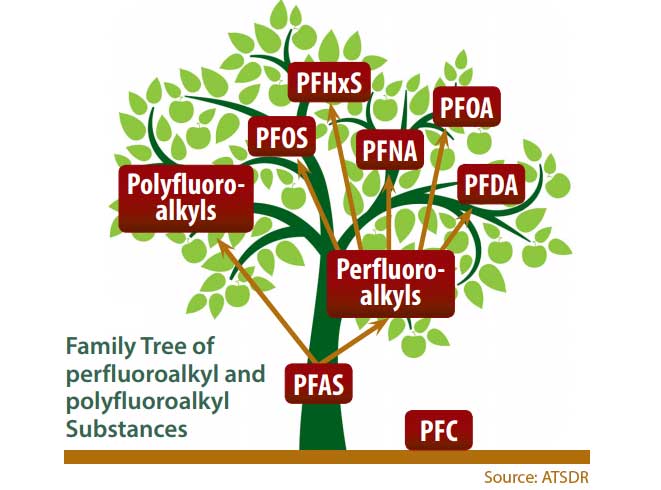Bozeman, MT July 19, 2022 –(PR.com)– A new peer-reviewed report by a panel of scientists sheds new light on regulation and management of per- and polyfluoroalkyl substances (PFAS). SciPinion, which objectively engages the global scientific community to analyze the toughest scientific topics, today announced the publication of an important scientific report on PFAS, a class of chemicals that have a myriad of commercial uses.
Funded by the American Chemistry Council, the peer-reviewed report, “Grouping of PFAS for Human Health Risk Assessment: Findings From an Independent Panel of Experts,” outlines key findings from a blinded and independent panel of 15 of the world’s experts in PFAS chemistry and toxicology, as well as experts in mixtures risk assessment. The panel focused specifically on how the different types of PFAS should be grouped together for risk assessment.
Key findings from the panel of international experts include:
● Most experts agreed that all PFAS should not be grouped together for risk assessment purposes.
● There is a lack of consistent interpretations of human health risk for PFAS and a lack of information for the vast majority of PFAS, which presents significant challenges for mixtures risk assessment.
● Persistence alone is not sufficient for grouping PFAS for the purposes of assessing human health risk.
● Most panelists agreed that it is inappropriate to assume equal toxicity/potency across the diverse class of PFAS.
PFAS became an important issue worldwide when it was discovered that two specific PFAS, PFOA and PFOS, have long half-lives, the time that a molecule spends in the body before being eliminated, in humans. PFOA and PFOS were removed from the marketplace in the United States nearly a decade ago. Some activists, scientists, and state legislatures have now been advocating for all PFAS to be treated as a single category and have argued to ban all PFAS. In contrast, there are important and fundamental differences amongst the numerous PFAS, many of which serve useful purposes in commerce.
"It’s clear that for a chemical class as diverse as PFAS, a scientifically rigorous approach to risk assessment is needed. We need to acknowledge that “risk assessment” is not a one-size fits all tool and the context matters, and that effective communication of uncertainties and data limitations is required.” said Dr. Janet Anderson, primary author of the academic report. "It is fascinating to present key questions about a complex and controversial problem like PFAS risk assessment to a diverse group of independent scientists from all over the world, using a deliberative process that facilitates an open exchange of ideas."
The report’s panel of international experts answered a wide range of questions, had access to hundreds of pages of scientific material, and debated each other in an online forum that provided psychological safety. This was important because PFAS have proven to be controversial.
SciPinion, which had complete control over all aspects of the blue ribbon panel in this academic report, relies upon proprietary and scientifically sound methods for recruiting, selecting, engaging, and reporting to minimize sources of bias and groupthink:
● Recruiting – We rely on active recruiting, with communications targeting more than 100,000 experts, to cast as wide a net as possible to experts that are qualified, willing, available, and unbiased for niched science topic areas.
● Selection – We rely on objective expertise metrics to select the top experts in the applicant pool. The sponsor did not have input on recruitment or selection of experts.
● Engagement – We employ a modified Delphi format, using multiple rounds, and allow experts to participate without knowing who else is on the panel (via web app) and were blinded to the sponsor. Panelists are also permitted to ask their own charge questions of their peers.
● Reporting – We rely on at-a-glance summary figures and tables, and precise metrics to report the degree of consensus on controversial science topics.
Dr. Sean Hays, president of SciPinion, said, "The assessment of PFAS is exactly the type of issue that SciPinion was created to tackle. It’s a controversial topic, where there is uncertainty in the science, the interpretation of the science is varied, and the implications for regulations and protection of public health are enormous. Through the rigorous SciPinion peer review process, the scientific, regulatory, and regulated communities can have confidence in the results of this panel."
About SciPinion | scipinion.com
SciPinion was created with the mission to help companies, governments, and consumers make better decisions by understanding the collective wisdom of the world’s experts, and to make science more trusted by all. Far too often, important debates about important scientific issues are inflamed by activists, competing research groups, or sometimes simply because the science on a specific issue has some uncertainty. That type of environment can lead to reactionary decisions by regulators or can fuel litigation. In some situations, experts who share their opinions on these controversial topics are attacked. By creating an environment whereby experts can share their opinions in a psychologically safe environment, SciPinion has created a safe haven for experts to share their true opinions without influence and we are putting this to work to help inform the most important science issues facing society. Learn more about our process and philosophy here.
Contact Information:
SciPinion, LLC
Sean Hays
(406) 404-6145
Contact via Email
https://scipinion.com
Read the full story here: https://www.pr.com/press-release/865635
Press Release Distributed by PR.com




